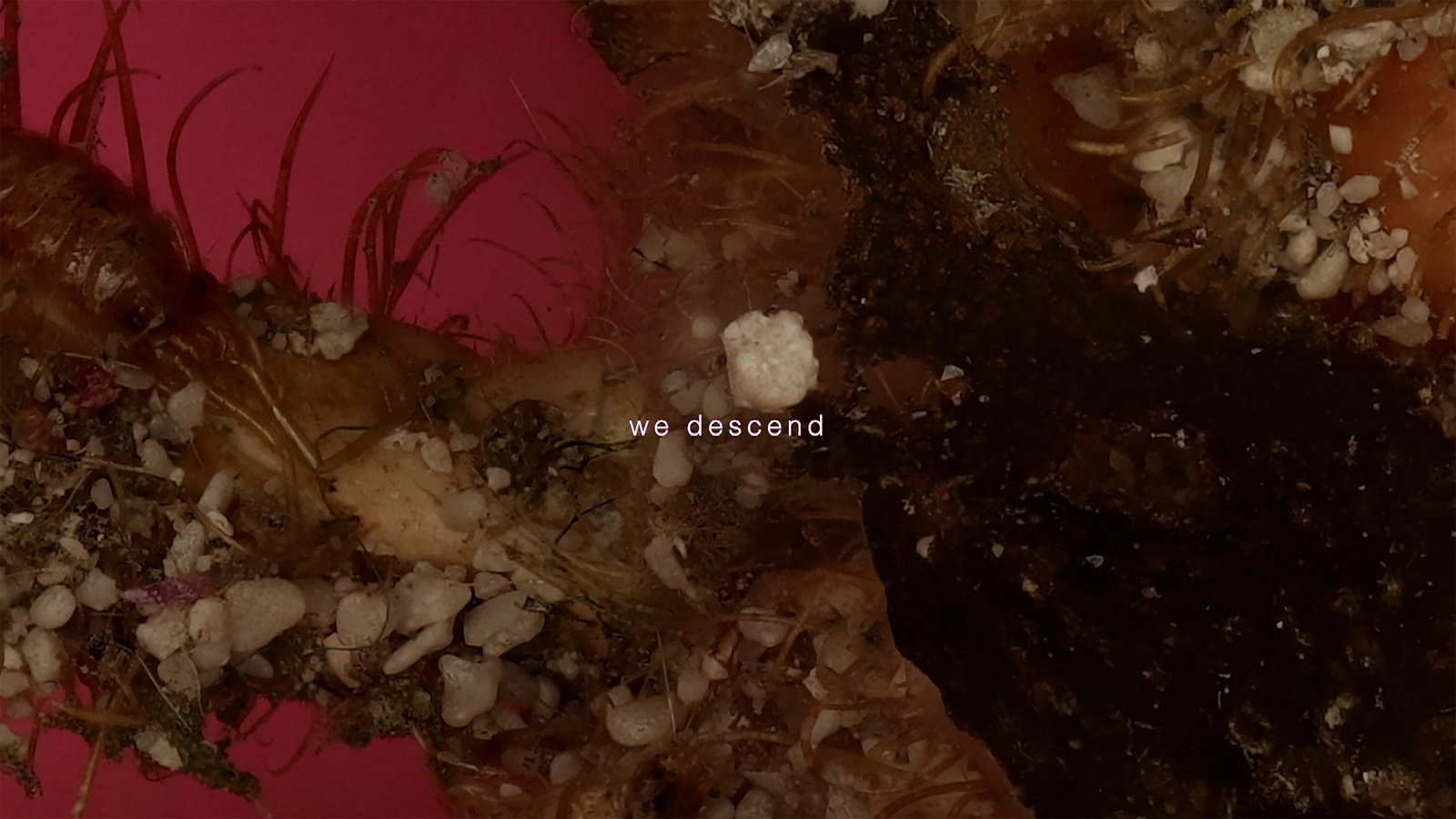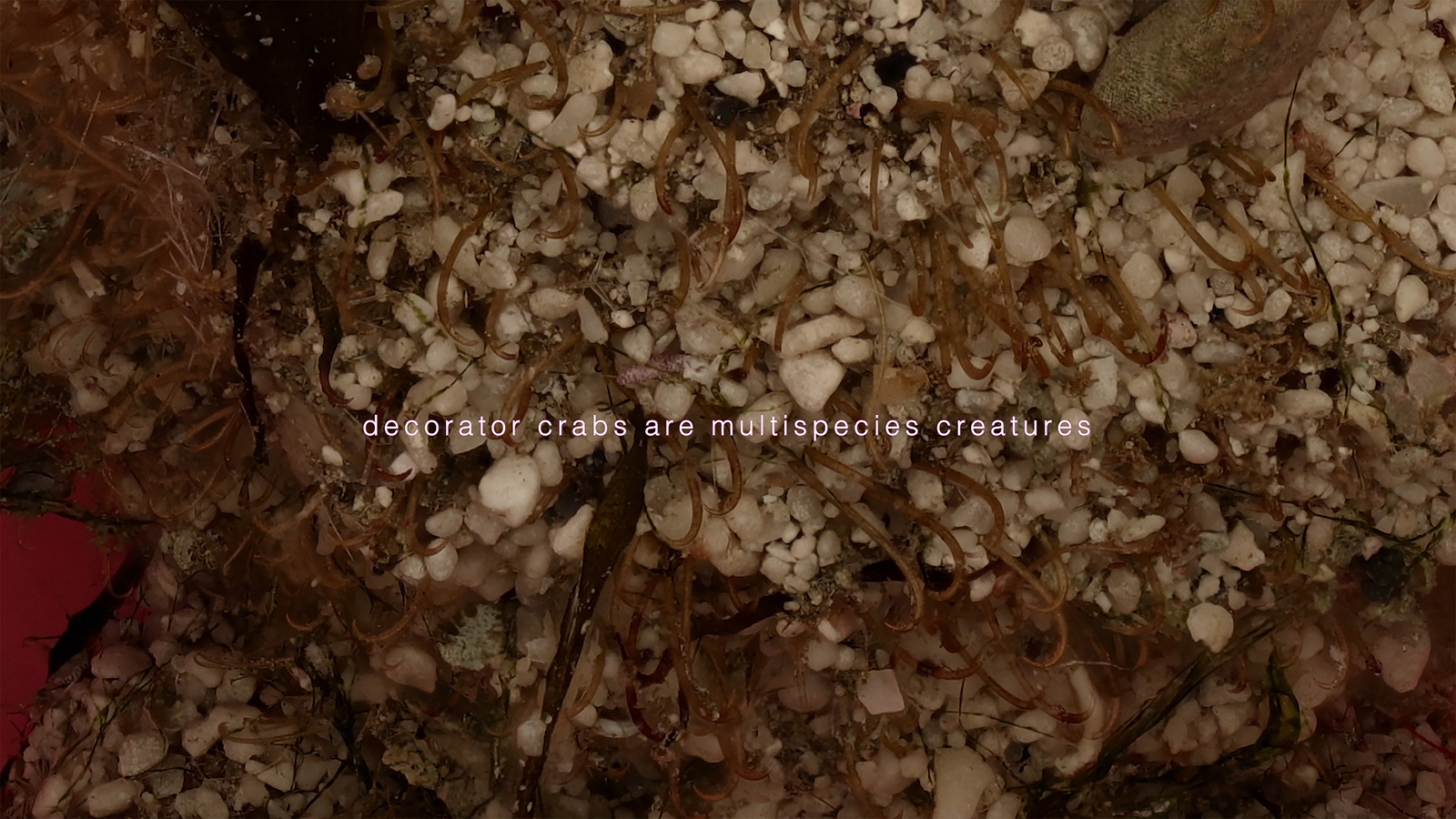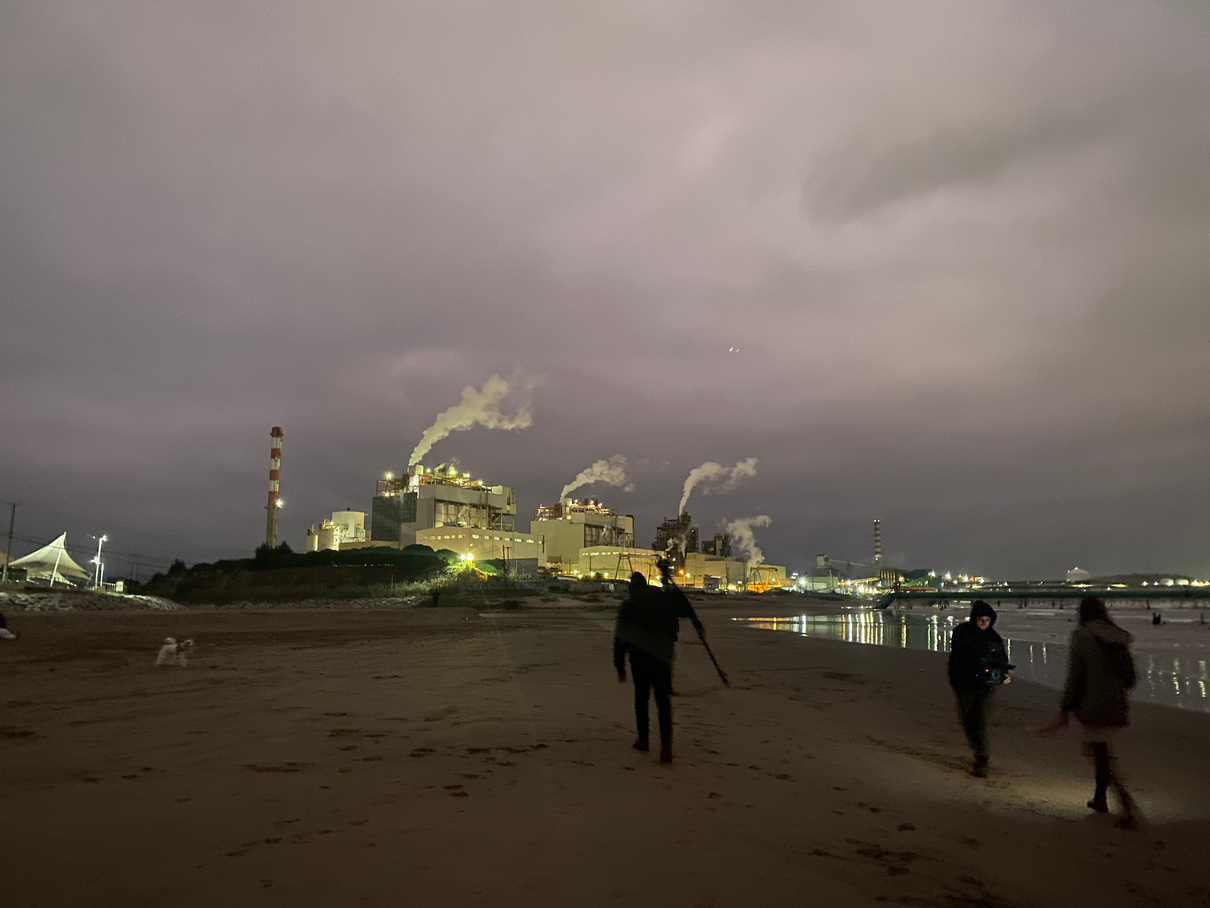thoughts for oceanic feminisms
About

Elizabeth Burmann and Jianni Tien are a multi-disciplinary collaborative team.
As a collective we recognise ourselves as fluidly ontological beings that identify conceptually as bodies of water. We are united in our interest in water as an ontological and feminist space of transformation – a space in which we can understand our selves as continually broken down, remade, and materially entangled with our environment.
Our practice remediates water, drawing out the material and discursive elements of situated bodies of water. In doing so we intend to dissolve the boundaries between entities, creating an embodied environmental ethics that is necessary as a distinctly feminist challenge to the Anthropocene.
Oceanic Feminisms
our projects
As researchers, we build upon and are inspired by the robust scholarship of those in the feminist environmental humanities, as well as scholars working at the intersection of feminism and oceanic studies, such as Stacey Alaimo, Astrida Neimanis, and Elizabeth DeLoughrey, amongst others.
Specifically neimanis' influential book 'Bodies of Water: Posthuman Feminist Phenomenology' (2017) traces a connection between us all as watery bodies, and the ways that this philosophical positionality disrupts (western) binaries that separate humans from nature. questioning such binaries are at the heart of the larger feminist project, as well as the feminist environmental humanities.
we position ourselves as part of this lineage of feminist thinkers and practitioners as we move toward a more fluid ontology for the anthropocene.
thinking-with decorator crabs
in this project, we spent six weeks caring for decorator crabs, interested in how we could learn from them, and with them. we have published a paper in feminist review about our time with the crabs and the lessons we learnt from their trans-corporeal embodiments. forthcoming in swamphen journal is a creative piece we have penned, a love letter to the decorator crabs who taught us so much. finally, we have created a short art film about the crabs, screened at risd museum in 2019.
works within the project

Tien, J., & Burmann, E. (2022). Thinking-with Decorator Crabs: Oceanic Feminism and Material Remediation in the Multispecies Aquarium. Feminist Review, 130(1), 78–96. https://doi.org/10.1177/01417789211066078
- paper:
Thinking-with decorator crabs: oceanic feminism and material remediation in the multispecies aquarium
Abstract
Feminist scholarship has increasingly turned towards the ocean as a conceptual apparatus in which to think through the complex philosophical and ethical dilemmas of the Anthropocene. Responding to the ebbs, flows and transformations of the oceanic turn, our article outlines our interactions with four decorator crabs. It begins by situating our experience of thinking-with these crabs as a feminist practice of care within the conceptual context of the ocean. Our article then draws on the knowledge that arose out of our fertile entanglements with the crabs to propose that: 1) the aquarium, with its colonial histories of subjugation, is a fertile space to re-image human–aquatic relationalities, revealing the fallacy of human control over ‘nature’ and emphasising the agency of marine worlds; 2) Stacy Alaimo’s concept of trans-corporeality is a powerful way to think through the consequences of an acidifying ocean, both for ourselves and for our shelled companions; and 3) remediation is a radical approach to taking seriously the materiality of watery worlds. The objective of the article is to craft a practice of material feminism that entangles our more-than-human bodies to learn-with decorator crabs. In doing so, we show that the aquarium is a potent space of transformation that allows us to imagine new and distinctly feminist entanglements that dismantle hierarchies. We show that thinking-with the materiality of marine worlds is a series of remediations, both material and discursive, that dissolve the boundaries between entities, creating an embodied environmental ethics that is necessary as a feminist challenge to the Anthropocene.
Keywords
trans-corporeality, multispecies care, oceanic feminism, material feminism, aquarium, remediation
2. swamphen
Forthcoming
remediating
ventanas
Remediating Ventanas is a multimodal and interdisciplinary art project that delves into the waters of Ventanas, a "sacrifice zone" on the coast of Chile that for more than half a decade has received toxic discharges from the Ventanas Industrial Park, whose industries and thermoelectric plants operate a few meters from the coast.
The term "sacrifice zone" operates on the understanding that it is the residents themselves who are sacrificed in the name of resource extraction. Ventanas has therefore become a central site of political and social activism. The toxicity emitted by industrial activities has seeped into the soil, air and waters of the region, threatening the local ecosystem and the health of its inhabitants - both marine and terrestrial. After years of complaints, the gradual closure of Codelco's last thermoelectric plant operating in Ventanas was finally approved, with closure to happen within 5 years. Today, the area's industrial landscape heralds its future as toxic ruin. Pipelines and chimneys will become relics of extractivism.
In July 2022, we travelled to Ventanas to participate in a "toxic picnic" - we sat on its contaminated sand and consumed food whilst witnessing the last days of the thermoelectric plant operating as a copper smelter, performing a transcorporeal exchange with the toxicity of the area.
This coming August we will run a workshop at the Extension Center of the Ministry of Cultures, Arts and Heritage, Centex, in Valparaiso, bringing together the local community of activists and artists. We will present our initial findings of the project, tentatively titled 'Benthic Remediations of Ventanas'.
Remediation refers to the "layers of mediations" Tien and Burmann, 2022, p.80) comprised in a situated understanding of the world, including both digital and material remediations. During the presentation, we will engage with the invisible and non-human materialities of Ventanas, using digital microscopes to observe organisms, contamination and other matter suspended in the collected samples.
The analysis will emphasise the identification of resilient organic life forms, decomposition, filtering and benthic organisms that resist creating new alliances from the toxicity of their environment. Then, we will remediate the waters of Ventanas by taking digital photographs of the microscopic materials, combining them in an experimental way to create a video that will be projected on the walls as the meeting happens. The Centex audience will be invited to participate in this process and research, opening a dialogue between the local community and other academics and artists working in Valparaíso and specifically with Ventanas. At the end of our presentation in Valparaíso, the collected samples will travel to Santiago and will be preserved in the Marine Biotoxins laboratory of the University of Chile, for a next scientific-material remediation.
The different layers of the project will eventually be brought together in a video piece and an academic paper. The result will put in dialogue our concept of remediation with the specific materiality and located in the historical, political, economic and biological context of Ventanas, producing a transversal and multiscale experience in which environment, text, materiality and performance will be covered.

bios and contact
Jianni Tien
jianni.tien@uts.edu.au
@jiannitien
Elizabeth Burmann
eburmann@gmail.com
https://elizabethburmann.com/
JIANNI TIEN is a PhD candidate in the School of Communication at the University of Technology Sydney and a former Visiting Research Fellow in the Department of Literary Arts at Brown University. Her research lies at the intersection of Digital Media, Cultural Studies and the Environmental Humanities. Jianni’s current work looks at the affective power of scuba diving in sinkholes, and how that power can be harnessed to formulate critically engaged responses to the Anthropocene.
ELIZABETH BURMANN holds an MFA in Sculpture from Rhode Island School of Design and a BFA from Pontificia Universidad Catolica de Chile. Her artistic practice and research delve into the encounters between nature and culture, engaging materially, and establishing crosses between biology, craft techniques and posthuman studies.